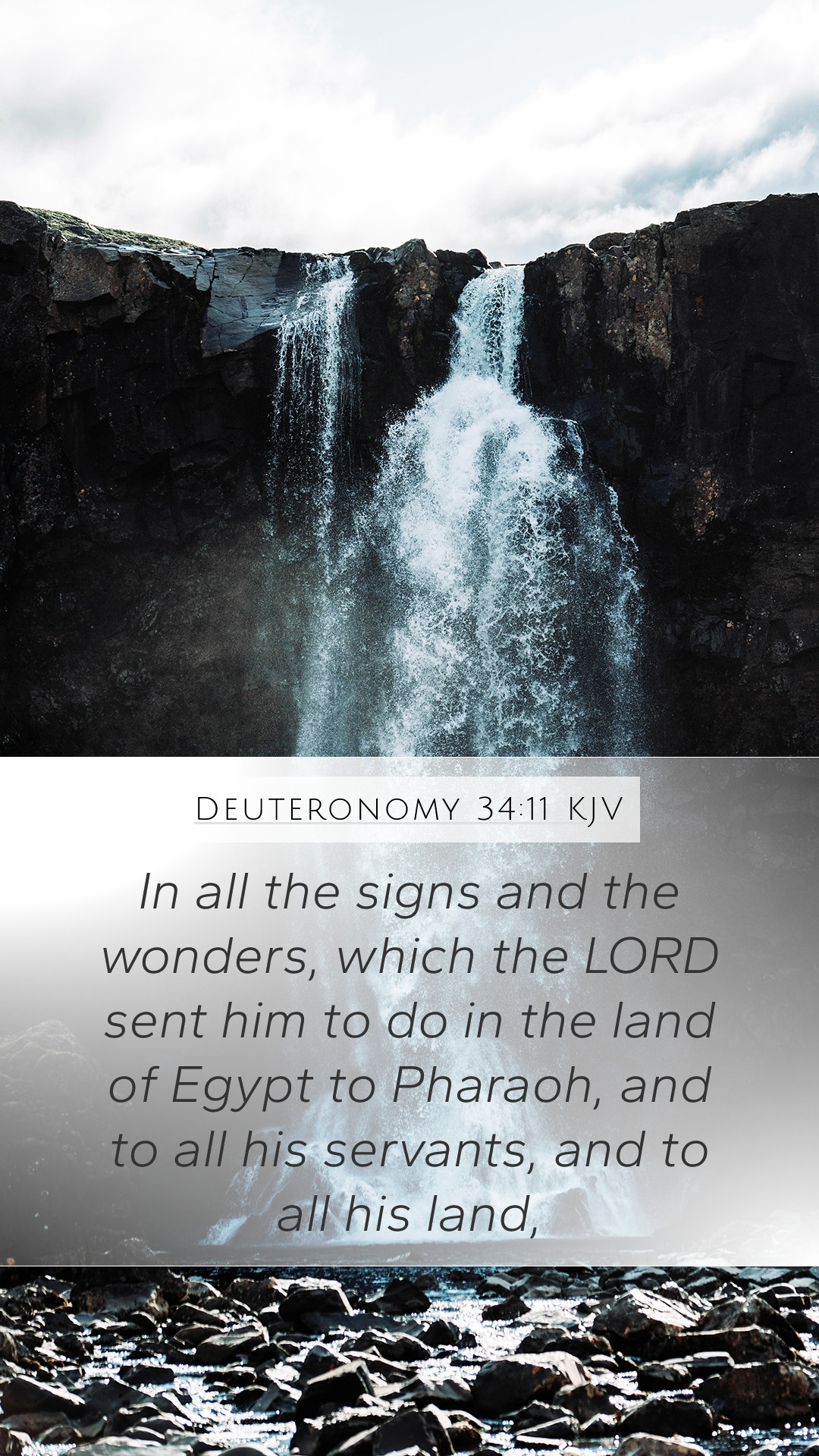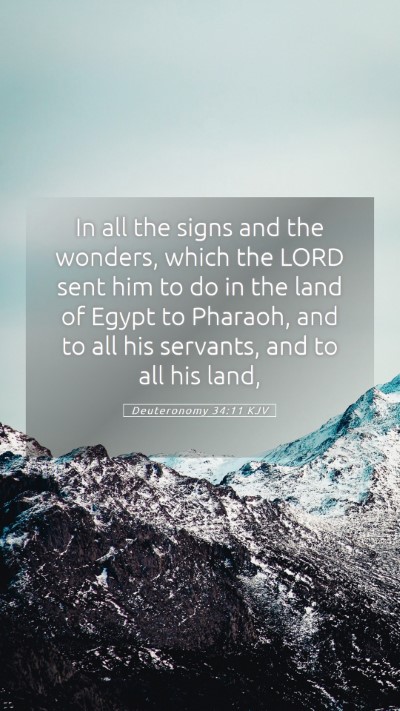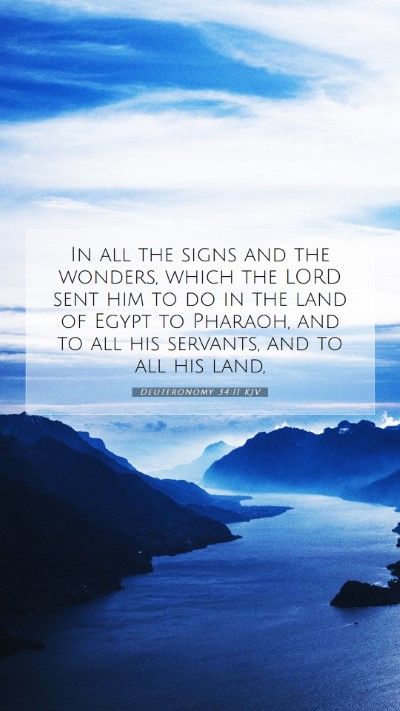Understanding Deuteronomy 34:11
This verse states: "And there arose not a prophet since in Israel like unto Moses, whom the LORD knew face to face." In this passage, the unique relationship between Moses and God, along with Moses' unparalleled position in biblical history, is highlighted.
Summary of Insights from Public Domain Commentaries
Matthew Henry's Commentary
Matthew Henry emphasizes the singular role that Moses played as a mediator between God and the people of Israel. He interprets this verse as a testament to Moses' faithful leadership and intimate knowledge of God's ways. Henry notes that Moses' relationship with God was not just that of a servant but of a friend, which sets him apart from other prophets who came after him. This highlights the depth of understanding and communication that Moses had with the Divine.
Albert Barnes' Commentary
Albert Barnes offers a detailed look at the prophetic role in Israel. He connects this verse to the broader context of prophetic ministry, noting that after Moses, the nation of Israel experienced various prophets but none who had the same direct encounter with God. Barnes suggests that this verse serves to remind Israel of the greatness of Moses' prophecy and the unique authority he bore as God’s appointed leader. He emphasizes that Moses was distinguished not just as a prophet but as the one who had a direct and personal communion with God.
Adam Clarke's Commentary
Adam Clarke notes the historical significance of this verse and explicates the notion that Moses’ prophecy was characterized by the miraculous acts and the law he delivered. Clarke reflects on how, following Moses, while other prophets arose, they did not attain to the same level of revelation or miraculous signs. This verse serves not only as a tribute to Moses but also as a reminder of God's covenant with Israel through him, which shaped the identity of the Israelite community.
Key Themes and Interpretations
- Intimacy with God: The phrase "whom the LORD knew face to face" illustrates the unparalleled closeness of Moses' relationship with God.
- Prophetic Uniqueness: Moses is presented as a unique figure in biblical history, standing apart from other prophets in terms of his direct communication with God.
- Legacy of Leadership: Moses' life and ministry laid the foundational principles for the spiritual and moral conduct of Israel as a nation.
- Historical Context: Understanding the Scripture properly involves recognizing the historical context during which Moses led the Israelites, emphasizing their journey from slavery to nationhood.
Cross References
- Exodus 33:11: "And the LORD spake unto Moses face to face, as a man speaketh unto his friend." This reinforces the intimate relationship Moses had with God.
- Numbers 12:6-8: God speaks of Moses’ unparalleled trust and how He communicates with him clearly, unlike other prophets.
- Hebrews 3:5-6: Compares Moses to Jesus, emphasizing Jesus’ superiority as the son over God's house, while acknowledging Moses’ faithfulness as a servant.
Application of the Verse
This verse invites believers to reflect on the significance of personal relationships with God. While no one may replicate the relationship Moses had, it inspires individuals to seek their own close communion with God through prayer, study, and obedience to His word. Furthermore, Moses' example serves as a model for leadership within the faith community—emphasizing the importance of faithfulness and direct communication with God.
Conclusion
Deuteronomy 34:11 holds profound meanings and implications not only for understanding Moses as a prophet but also for how we view leadership, prophecy, and personal relationships with God today. Engaging with this verse through Bible study groups or personal reflection facilitates a deeper understanding of Scripture and encourages personal application in daily life.


